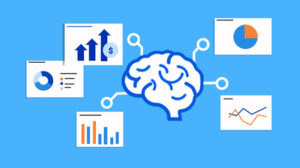eCommerce data analysts are specialized analysts who understand eCommerce businesses and are familiar with the systems in use at these companies, and the data these systems generate. Every eCommerce brand generates data on a daily basis that can be used to improve its business. In addition to the data in the eCommerce platform, data generated in an eCommerce business is typically found in the following categories of tools.
| Category | Tools |
| Analytics | Google Analytics, Mixpanel, Snowplow, Heap Analytics, etc |
| Advertising | Facebook Ads, Google Ads, Pinterest, Taboola, Outbrain, etc |
| Email Marketing Platforms | Klaviyo, MailChimp, Sendgrid, Constant Contact, etc |
| eCommerce | Shopify, BigCommerce, Magento, WooCommerce, etc |
| Customer Support and Engagement | Intercom, Freshdesk, Freshchat, Zendesk |
| ERP Systems | Quickbooks, Xero, NetSuite, etc |
Nowadays, with so much that people are doing online, the amount of data being generated has increased leaps and bounds. So there comes the need for a dedicated data analyst, who would generate reports, organize and manage the data, identify KPIs, and several other tasks. This specialist is a data analyst and not necessarily a data scientist if you want to focus on your marketing and business needs. This article will explicitly explain the need for every business to hire a data analyst to drive them in the right direction.
What Does A Data Analyst Actually Do?
Every business generates and collects data such as sales figures, market research, logistics, or transportation costs. A data analyst’s primary job is to translate this data into important insights that can be used by companies to make better business decisions. This can involve anything like figuring out how to determine the price of new materials for the market, how to reduce transportation costs, solve issues that cost the company money, or decide how many people should be working on a project, etc. Analysts can participate in any part of the analysis process. It can start by setting up an analytics system to provide insights based on the data that has been collected. They can also be utilized to give training to others in the data-collection system. There are several types of data analysts in the field such as operations analysts, marketing analysts, financial analysts, etc.
Important Tasks Performed By A Data Analyst
- Collecting data – Streamlining raw data collection is key for data analysts. Perhaps the most technical aspect of an analyst’s job is collecting the data and setting up the infrastructure. Working together with web developers and collaborating to optimize data collection is the primary task of an analyst. They work to develop routines that can be automated and easily modified in other areas.
- Producing reports – Most of the time an analyst spends time producing reports. Those reports are essential for higher management as they give insights about new trends on the horizon as well as areas the company may need to improve. The decision-makers viewing the reports are generally not analysts. Hence, reporting becomes a difficult task as analysts have to create simple narratives along with analyzing the data. There are many popular tools that can be used for reporting like Looker, Tableau, or Microsoft PowerBI.
- Spotting patterns – Successful data analysts are those who can use the data to tell a story. For analysts first step toward creating an important report is to identify connected patterns in the data. Fundamentally data is used to find trends and insights that can be used to make recommendations to the Brands.
- Collaborating with others – With a wide variety of roles and responsibilities, a data analyst has to collaborate across many other departments in an organization including marketers, executives, and salespeople. They also need to work closely with data architects and database developers. The skill of excellent communication is also very essential.
Why Do All Successful eCommerce Businesses Employ A Data Analyst?
With the fast evolution of data science and data analytics, every company is feeling the need to have their own expert who will be able to give them insights into the past, present, and future. Data Analysts are the only people who know how to organize and read this information. They are considered to be the priced asset to companies in all sectors as they help executives make important business decisions based on data and metrics.
A data scientist performs roles involving all three key disciplines, data analysis, statistics, and Machine Learning. Perfecting all three roles will be difficult most of the time. Moreover, to achieve fast and effective results in the process of analysis, one needs to employ data analysts. So, start with analytics to see a world of rich and beautiful information in front of you.
Data-driven inspiration is a powerful thing. Power up your Business with us.













